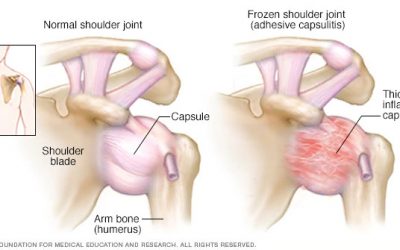Chest Physiotherapy For Cerebral Palsy
What Is Cerebral Palsy?
Cerebral Palsy (CP) is a permanent movement disorder appearing in early childhood due to brain damage, affecting movement, balance, and posture. Symptoms appear during infancy or preschool years and vary from very mild to serious. It’s commonly caused by prenatal infections, premature birth, or oxygen deprivation during or after birth. Symptoms may include coordination difficulty, abnormal reflexes, and posture issues. Cerebral Palsy has types like Spastic, Dyskinetic, and Ataxic, each with unique motor symptoms.
Though incurable, management strategies like therapy, medication, and sometimes surgery can enhance life quality for individuals with CP. The condition’s impact varies widely; some need extensive, lifelong care while others require minimal support. A multidisciplinary approach helps manage symptoms and associated disorders like intellectual disability and seizures, improving the individual’s overall wellbeing.
How Does Chest Physiotherapy Help People With Cerebral Palsy?
Though incurable, management strategies like physical therapy, medication, and sometimes surgery can enhance the quality of life for individuals with Cerebral Palsy who can experience respiratory issues due to muscle weakness, poor posture, and impaired cough reflexes. The condition’s impact varies widely; some need extensive, lifelong care while others require minimal support. A multidisciplinary approach helps manage symptoms and associated disorders like intellectual disability and seizures, improving the individual’s overall wellbeing.
1. Improved Airway Clearance:
Chest Physiotherapy helps in clearing the airways by removing mucus and other secretions, which can be beneficial as individuals with CP who have difficulty with effective coughing due to their motor impairments. This improvement in airway clearance may help prevent hospitalisations related to respiratory issues. Techniques such as postural drainage and chest vibrations can help clear retained secretions that obstruct the airways.
2. Enhanced Respiratory Mechanics:
The motor disorder in CP can impair breathing mechanics. Chest physiotherapy helps in improving breathing mechanics by training the muscles involved in respiration, thus enhancing the effectiveness of breathing.
3. Reduced Respiratory Infections:
Children with quadriplegic spastic cerebral palsy often have an impaired cough mechanism, leading to a high prevalence of pneumonia and atelectasis, which in turn can result in prolonged hospitalisations. Conventional Chest Physiotherapy (CPT) is recommended at the onset of lower-respiratory infections in individuals with CP to help alleviate these conditions.
4. Support For Severe Impairments:
In severe cases, Cerebral Palsy may cause scoliosis and other musculoskeletal issues which can further impair respiratory function. Chest Physiotherapy can be part of an intervention strategy to maximise physical and musculoskeletal functions, aiding in better respiratory function.
Who Can perform Chest Physiotherapy?
Chest physiotherapy can be performed by a qualified chest physiotherapist who has been trained in the techniques. Inspire Healthcare can help with NDIS Physiotherapists in Sydney or a Physiotherapists in Melbourne.
What Are The Risks Of Chest Physiotherapy?
The risks of chest physiotherapy are generally minor and include:
- Bruising
- Skin irritation
- Chest pain
- Nausea
It’s important to consult a qualified healthcare professional and avoid any major DIY physio treatments at home to minimise risk. It’s also important to be honest and transparent with your physiotherapist if you have any underlying health conditions so they can advise on the best type of treatments for you.
Booking a Physiotherapy Appointment
Inspire Healthcare are a multi-disciplinary professional healthcare agency, book an appointment with a mobile NDIS Physiotherapist in Sydney or a Physiotherapist in Melbourne.
Author
-

Guyver Mac
Managing Director & Principal PhysiotherapistGuyver specialises in gerontology and neurological physiotherapy, and has been working with NDIS since 2017 and practicing physiotherapy since 2015. He excels in treating conditions like Multiple Sclerosis (MS), stroke, neurological conditions, and global developmental delay. One of Guyver's favourite career moments as a physio is helping an Inspire Healthcare client with Multiple Sclerosis walk his daughter down the aisle at her wedding. Outside of work, Guyver enjoys going to the gym, swimming, and watching rugby league.

